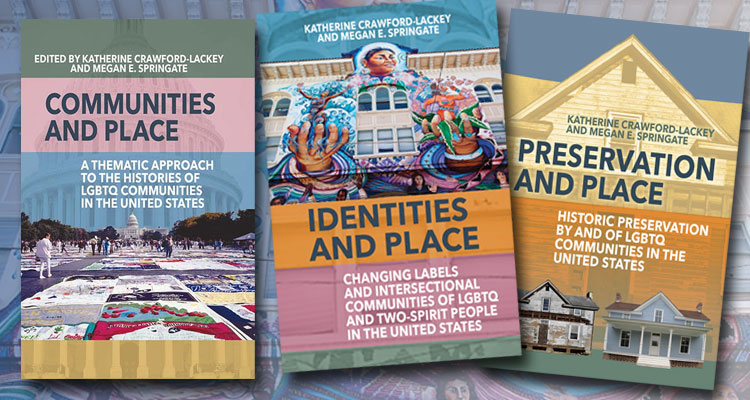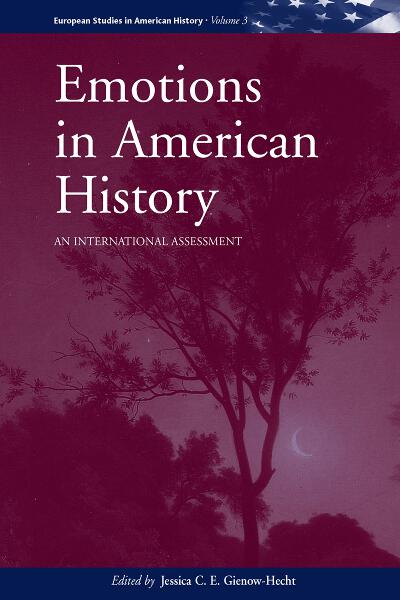
Celebrate National Coming Out Day with this great free-to-access content!





Juneteenth (19 June) is the oldest nationally celebrated commemoration of the ending of slavery in the United States. In the spirit of this day, we are featuring an excerpt from “The triple-sidedness of “I can’t breathe”: The COVID-19 pandemic, enslavement, and agro-industrial capitalism” by Don Nonini (published in Focaal, Vol. 2021: Issue 89).
Andrew J. Bacevich

Excerpted from Chapter 9 of NOT EVEN PAST: How the United States Ends Wars edited by David Fitzgerald, David Ryan, and John M. Thompson.
A successful marriage is one in which partners find ways of reconciling their own individual needs with those they share as a couple. The challenge is to enable me and you to coexist with us in relative harmony. To indulge in wedding day illusions of being exempt from such challenges—to fancy that a new us transcends me and you—is to guarantee mutual disappointment. The sooner all parties jettison such illusions the better.
Continue reading “Excerpt: Changing the Subject: How the United States Responds to Strategic Failure”
Browse our February and March 2020 releases in Anthropology, Archaeology/Heritage Studies, History, Memory Studies, and Mobility Studies and see what’s new in paperback.
Continue reading “Anthropological Issues and US President Obama”
by Cecília Tomori
For World Breastfeeding Week, we’re delighted to offer FREE access to a chapter from Nighttime Breastfeeding for a limited time. Click here to access this chapter, titled Embodied Cultural Dilemmas: An Anthropological Approach to the Study of Nighttime Breastfeeding and Sleep.
Nighttime Breastfeeding addresses the central question: why do so many American parents struggle with nighttime breastfeeding and sleep? I set out to answer this question, which emerged from my preliminary fieldwork, using the classic anthropological technique of participant observation. I spent many months immersed in fieldwork, and then many more surrounded by all the materials I had collected – piles of fieldnotes to interview recordings, brochures, photos, and, most importantly, memories of being with families who have graciously let me into their lives. I revisited key moments over and over again – recalling certain phrases, pauses, and gestures, which I could examine through the lenses offered by my anthropological training. Continue reading “Why do so many American Parents Struggle with Nighttime Breastfeeding and Sleep?”
by Britta Waldschmidt-Nelson
 The following excerpt was adapted from chapter 11 in the book Emotions in American History: An International Assessment edited by Jessica C. Gienow-Hecht, published in 2010.
The following excerpt was adapted from chapter 11 in the book Emotions in American History: An International Assessment edited by Jessica C. Gienow-Hecht, published in 2010.
The history of emotions provides important keys to understanding human behavior and can be of great assistance in explaining wider political, social, and economic trends in American history.1 This applies in particular to the history of African Americans, as racial conflicts in general and the black struggle for freedom and equality in particular repeatedly stirred public emotions in the United States to a degree hardly ever reached by other domestic issues. Thus, interracial relations have always been identified as an extremely emotionally charged aspect of American history, and in view of the new approaches to historical research proposed by the history of emotion, a closer examination of this phenomenon can offer significant additional insights into the close connection between emotions and politics. A broad and multifaceted cluster, such as the Civil Rights Movement or any other social protest movement, encompasses emotions on various levels and should therefore be analyzed from more than one perspective. Continue reading “Does Every Vote Count In America? Emotions, Elections, and the Quest for Black Political Empowerment”
By Michael Minkenberg
 The Capitol Building is in the midst of a $60 million renovation project, the first time work has been done on the iconic dome in fifty years. The renovation will be completed by January 2017, for the next presidential inauguration, but it is safe to say the inner workings of the building will still be in great disrepair after the scaffolding comes off. Tours of the dome have been suspended, but television networks and producers still rely on the dome to signal their correspondent or pundit is based in DC. We have become familiar to seeing the dome, covered in a wiry shell, while the work is being done during this tumultuous election year.
The Capitol Building is in the midst of a $60 million renovation project, the first time work has been done on the iconic dome in fifty years. The renovation will be completed by January 2017, for the next presidential inauguration, but it is safe to say the inner workings of the building will still be in great disrepair after the scaffolding comes off. Tours of the dome have been suspended, but television networks and producers still rely on the dome to signal their correspondent or pundit is based in DC. We have become familiar to seeing the dome, covered in a wiry shell, while the work is being done during this tumultuous election year.
Continue reading “The Capitol Building (Under Construction)”